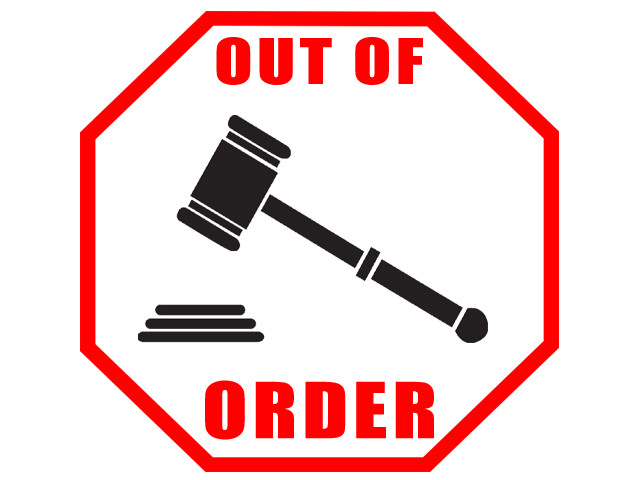On the shelf: Over 1.6 million cases pending in all courts
"Pakistan has a miniscule 8% conviction rate since there are no proper laws."

Despite tall claims of dispensing speedy justice by the National Judicial Policymaking Committee (NJPMC), over 1.6 million cases remain pending in courts all over the country.
According to data compiled by NJPMC and available with The Express Tribune, 1,635,935 cases remained pending in the Supreme Court (SC), Federal Shariat Court, high courts and the district judiciary by the end of November 2012. While 265,802 cases were disposed of during November, another 239,242 cases were instituted in the courts during the month.

Judicial experts believe the reason behind such a massive backlog of cases is the lack of government attention towards the needs of the judiciary.
“Since 1947, there has been only one district and sessions judge in Lahore, despite the fact that both population and crime have been on the rise since,” said Judicial Activism Panel (JAP) Chairman Muhammad Azhar Siddique. He told The Express Tribune that the posts of civil judges as well as high court and SC judges have not been increased commensurate to the requirement.
While enhancing the judiciary’s capability is the government’s responsibility, the government, both military and democratic, always shifts the entire blame for unresolved cases to the former, the JAP chairman contended.

He maintained that around 80% cases remain pending before courts due to government negligence, through faulty investigations or violation of merit policies, etc. He elaborated that Pakistan had a miniscule 8% conviction rate since there were no proper laws to discourage malicious litigants. All this compounded an unnecessary burden on the courts.
Siddique emphasised the need for strict legislation against malicious litigants in particular, saying that doing so would drastically reduce the number of pending cases.
According to special assistant to the prime minister and prominent lawyer Fawad Chaudhry, however, judicial reforms were not possible until the judiciary and both the federal and provincial governments were on the same page. In addition to that, he said judicial reforms were intertwined with land reforms, jail reforms, police reforms and administrative reforms.
While Chaudhry admitted the failure of the government to enhance the judiciary’s capability to deal with the influx of cases, he maintained the judiciary was responsible for the gargantuan backlog as well due to its acceptance of ‘unnecessary applications’. He also criticised NJPMC December 31 deadline for the disposal of cases that had been pending for a very long time.
“How can a judge ensure the quality of justice by deciding a case in such a short time,” he questioned rhetorically.
Published in The Express Tribune, December 31st, 2012.



















COMMENTS
Comments are moderated and generally will be posted if they are on-topic and not abusive.
For more information, please see our Comments FAQ